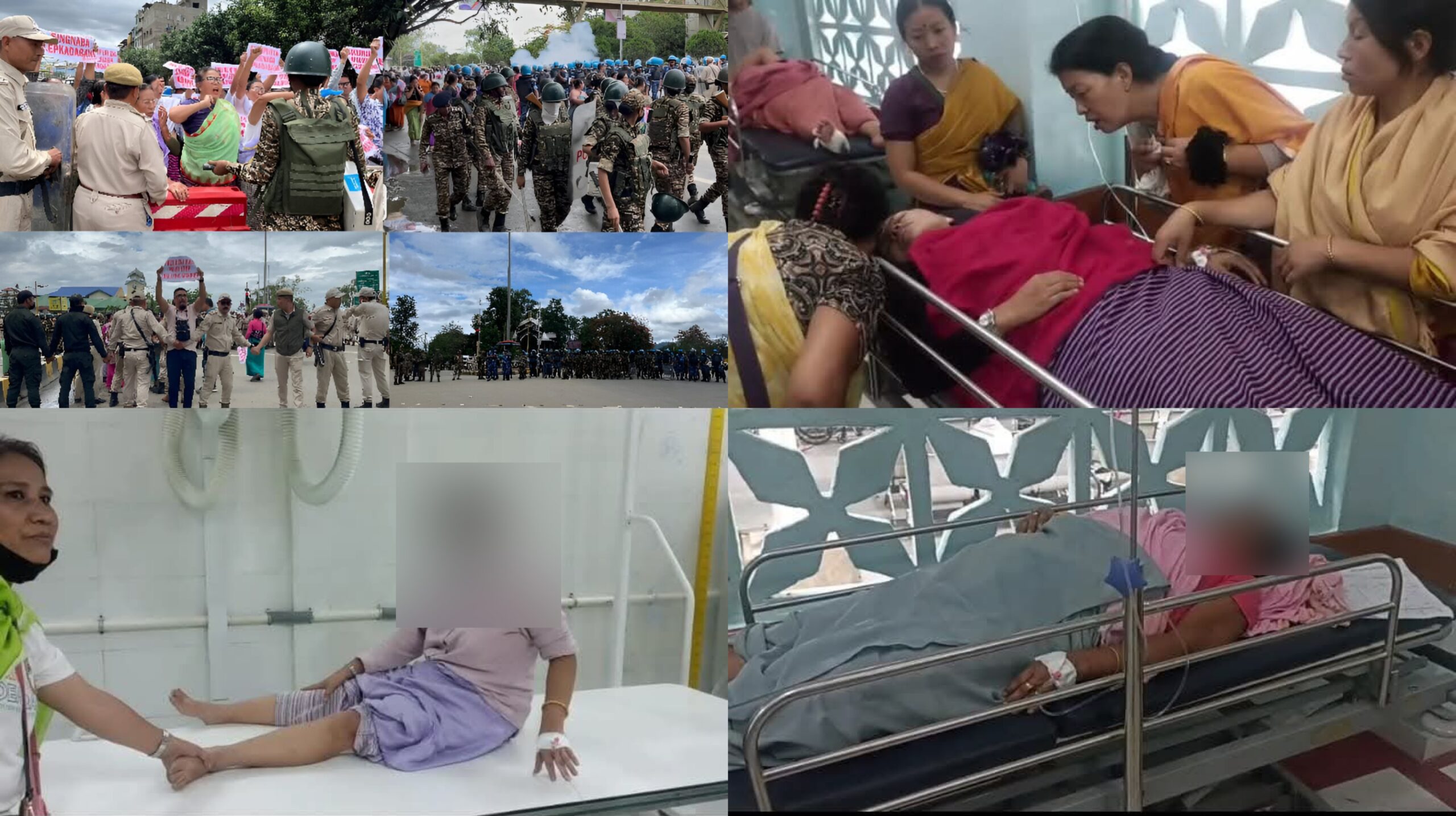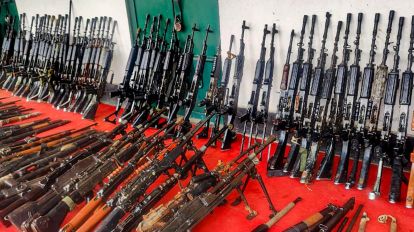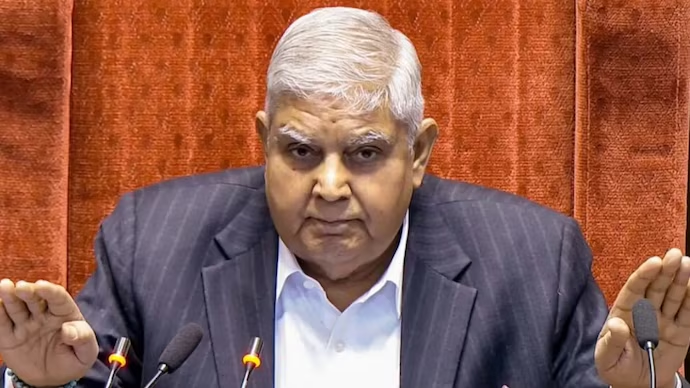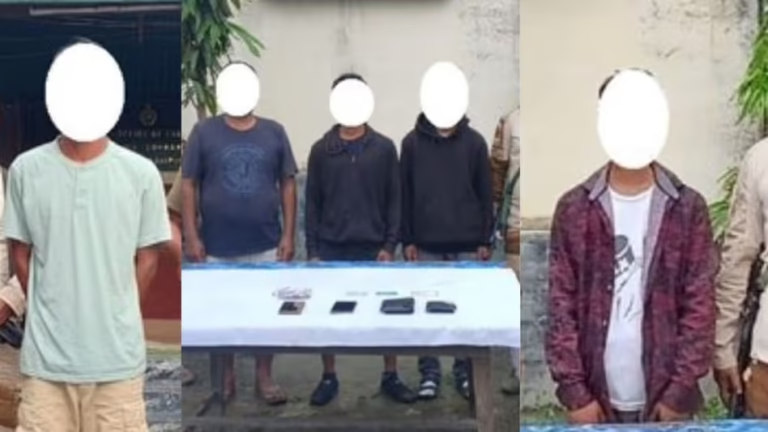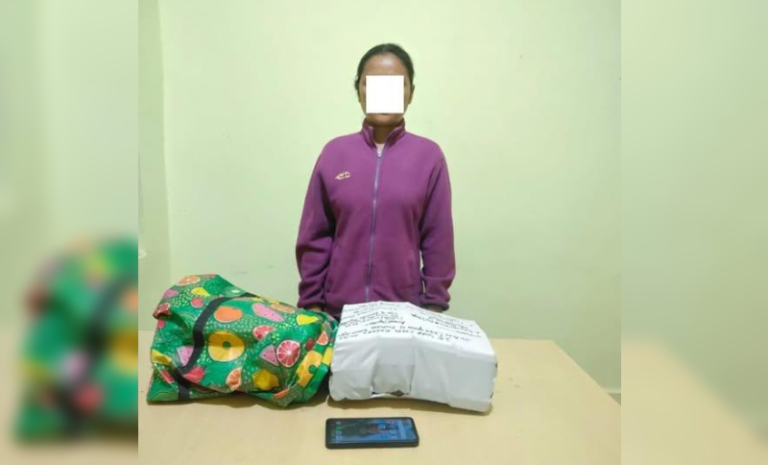Manipur Protests Erupt Over Governor’sSilence:Identity, Outrage, and the Road Ahead
Summary of the Incident
On May 25, 2025, Manipur witnessed a significant escalation in civil unrest as thousands of women, led by the Coordinating Committee on Manipur Integrity (COCOMI), marched towards the Raj Bhavan in Imphal. Their demand was clear: a public apology from Governor Ajay Kumar Bhalla for the May 20 incident where security personnel allegedly forced the removal of the word “Manipur” from a state transport bus carrying journalists. The protest turned violent when security forces used tear gas and smoke bombs to disperse the crowd, resulting in injuries to at least seven women. COCOMI has since announced a boycott of the Governor and plans to intensify their agitation, emphasizing the defense of Manipur’s identity and heritage.
Understanding the Unrest: A Deep Dive into Manipur’s Identity Crisis
The Gwaltabi Incident: A Spark Ignites
On May 20, 2025, during the Shirui Lily Festival, a Manipur State Transport bus ferrying journalists was reportedly stopped at the Gwaltabi checkpoint by personnel from the 4th Mahar Regiment. The security forces allegedly demanded that the word “Manipur” be concealed on the bus’s windshield, citing security concerns. This act was perceived by many as an affront to the state’s identity, igniting widespread outrage among the populace.
COCOMI’s Stand: Defending Identity
COCOMI, a prominent civil society organization in Manipur, swiftly condemned the incident, viewing it as an attempt to erase the state’s identity. They demanded a public apology from Governor Bhalla and the resignation of key administrative officials, including the Chief Secretary, Security Advisor, and Director General of Police. COCOMI also called for the formation of an independent inquiry committee, led by a retired High Court judge, to investigate the matter thoroughly.
The Protests: From Peaceful to Turbulent
On May 25, thousands of women, under COCOMI’s leadership, marched towards the Raj Bhavan, carrying placards and chanting slogans demanding justice. The protest, which began peacefully, escalated when security forces deployed tear gas and smoke bombs to disperse the crowd, resulting in injuries to several women. The injured were identified as Geeta Devi (44), Shanti Devi (72), Priya Devi (42), Gyaneshori (58), Abe Devi (52), Kh. Rajeshwori (64), and K. Sabitri Devi (60).
Boycott and Civil Disobedience: A Unified Front
In response to the Governor’s silence, COCOMI announced a complete boycott of Governor Bhalla, urging citizens to refrain from engaging with any events or functions involving him. They also initiated a civil disobedience movement, encouraging the public to withdraw cooperation from central government offices and participate in peaceful protests, including rallies, torch processions, and sit-ins across the state.
Analyzing the Implications
The incident and subsequent protests underscore a deeper sentiment among the people of Manipur—a perceived erosion of their identity and autonomy. The demand to conceal the state’s name on a government bus is seen not merely as a security measure but as a symbolic act of marginalization. COCOMI’s actions reflect a broader desire to assert and protect the cultural and political identity of Manipur in the face of perceived external pressures.
Government’s Response: Steps Taken
In the wake of the controversy, Governor Bhalla constituted a two-member committee to investigate the incident, comprising Home Commissioner N Ashok Kumar and IT Secretary Th Kirankumar Singh. The committee has been tasked with submitting its findings within 15 days and recommending measures to prevent such occurrences in the future.
Broader Context: Identity Movements in India
Manipur’s protests are part of a larger tapestry of identity-based movements across India, where communities seek to preserve their cultural heritage and autonomy. Similar sentiments have been observed in regions like Assam, Nagaland, and Kashmir, highlighting the complex interplay between regional identities and national governance.
Frequently Asked Questions
Q1: What triggered the recent protests in Manipur?
A: The protests were sparked by an incident on May 20, 2025, where security personnel allegedly forced the removal of the word “Manipur” from a state transport bus carrying journalists, leading to widespread outrage over perceived threats to the state’s identity.
Q2: Who is leading the protests?
A: The Coordinating Committee on Manipur Integrity (COCOMI), a prominent civil society organization, is at the forefront of the protests, advocating for the state’s identity and autonomy.
Q3: What are the protesters’ main demands?
A: The protesters are demanding a public apology from Governor Ajay Kumar Bhalla, the resignation of key administrative officials, and the formation of an independent inquiry committee to investigate the incident
Q4: How has the government responded to the protests?
A: Governor Bhalla has formed a two-member committee to investigate the incident and recommend preventive measures. However, protesters have rejected this move, calling for an independent inquiry.
Q5: What is the significance of the protests in the broader Indian context?
A: The protests highlight ongoing tensions between regional identities and central governance in India, reflecting a broader struggle for cultural preservation and autonomy among various communities.
